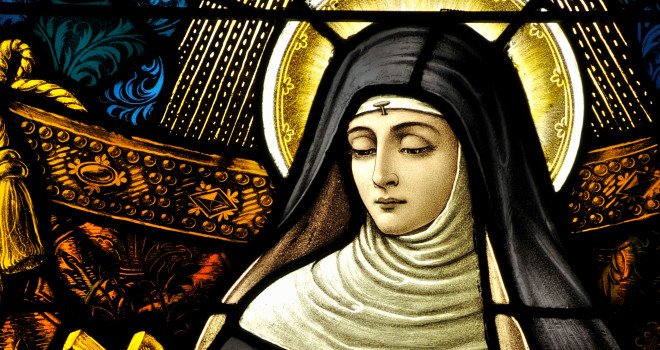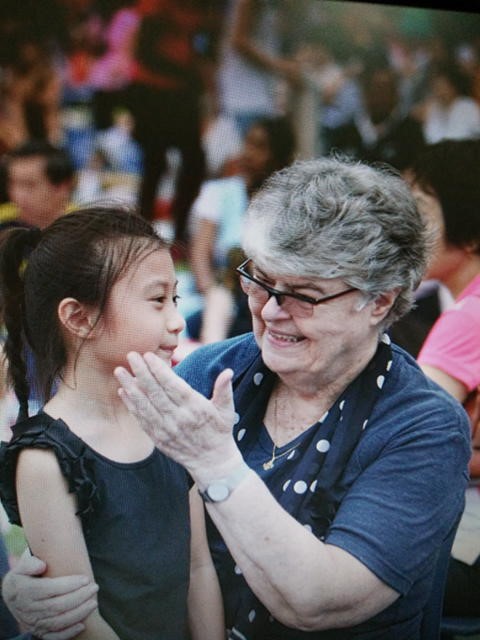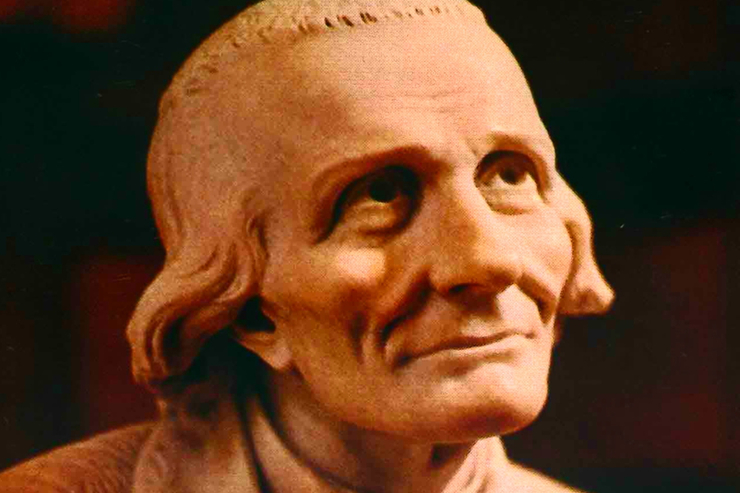St Monica was born to a Christian family in North Africa in 333 A.D. Married as a young girl to Patritius, a pagan who held an official position in Tagaste, her life was filled with disappointment and trial, for Patritius was a quarrelsome and demanding husband. Faced with daily tensions and difficulties in her unhappy marriage, St Monica continually displayed a profound and dedicated love for God through constant habits of prayer, almsgiving, and acts of charity. These annoyed Patritius, and became, without a doubt, the cause of significant friction in their marriage. Monica refused to ignore her duty toward the words of Christ, “Come, follow me” (Mt 4:19). St Monica is well-regarded because of her son, St Augustine of Hippo, who took after his father. She was responsible for his conversion before her death in 387 AD. So what can educators learn from St Monica?
Have faith in the presence of God despite the environment
St Monica married into a non-Catholic family. Her mother-in-law and her husband were not Christians and were unhappy with her daily devotions to God. Her marital environment would have caused many other women to despair and eventually give up their faith for the sake of peace. But not St Monica. As educators, St Monica is a role model who teaches us that even though teachers work in secular environments, it is possible to continue with our Catholic faith. While teachers may not be allowed to pray publicly and talk about God to students publicly (MOE has clear guidelines on evangelisation in schools), they can exhibit their faith through their daily actions. Catholic educators in non-Catholic schools can display a love of God by doing their work well, caring for the students under their charge and submitting to their supervisors in obedience to God. For Catholic educators in Catholic schools, there is more room to display and grow your faith. Catholic educators can volunteer to teach RCCE, lead prayers at morning assembly, lead catholic activities in schools, and help organise masses for the students.
Pray for conversion
Despite having a difficult husband and son, St Monica saw beauty in her life’s work. Her daily habit of prayer and persistence in living a holy life converted both her husband and son. Educators today sometimes work in hostile environments with demanding parents and uninterested students. Like St Monica, educators can pray for their conversion. Instead of reacting negatively at a parent or a student expressing their unhappiness at the system or at us, teachers can offer up prayers for them. Their conversion may not come about immediately—St Monica prayed for her son for 17 years.
See meaning and beauty in the vocation
Although St Monica had a very difficult time as a wife and mother, she still saw the beauty of her vocation. St Augustine lived a life of laziness and impurity by his own admission. Yet because of his mother’s prayer and labour over 17 years, St Augustine is today one of 33 Doctors of the Catholic Church, the Doctor of Grace and the Doctor of Doctors. It appears that the conversations St Augustine had with his mother in her last years was that they pondered what it might be like “to share the eternal life enjoyed by the saints, ‘which eye has not seen, nor ear heard, which has not even entered into the heart of man'” (1 Cor 2:19). Educators can try to see the beauty of their vocation. Visualising what the students can be when they are fully matured, educators can see past their present behaviours. A student who may be unmotivated and aggressive may become an important influential person in the next decade. Educators can and do impact students’ lives positively. From the lives of St Monica and St Augustine, educators can realise that no student is a lost cause. Educators must know that students can and do change for the better. Keeping your focus on the students’ development will enable all educators to see the beauty in the vocation. Like St Monica, educators are called to be the model of a virtuous parent.





